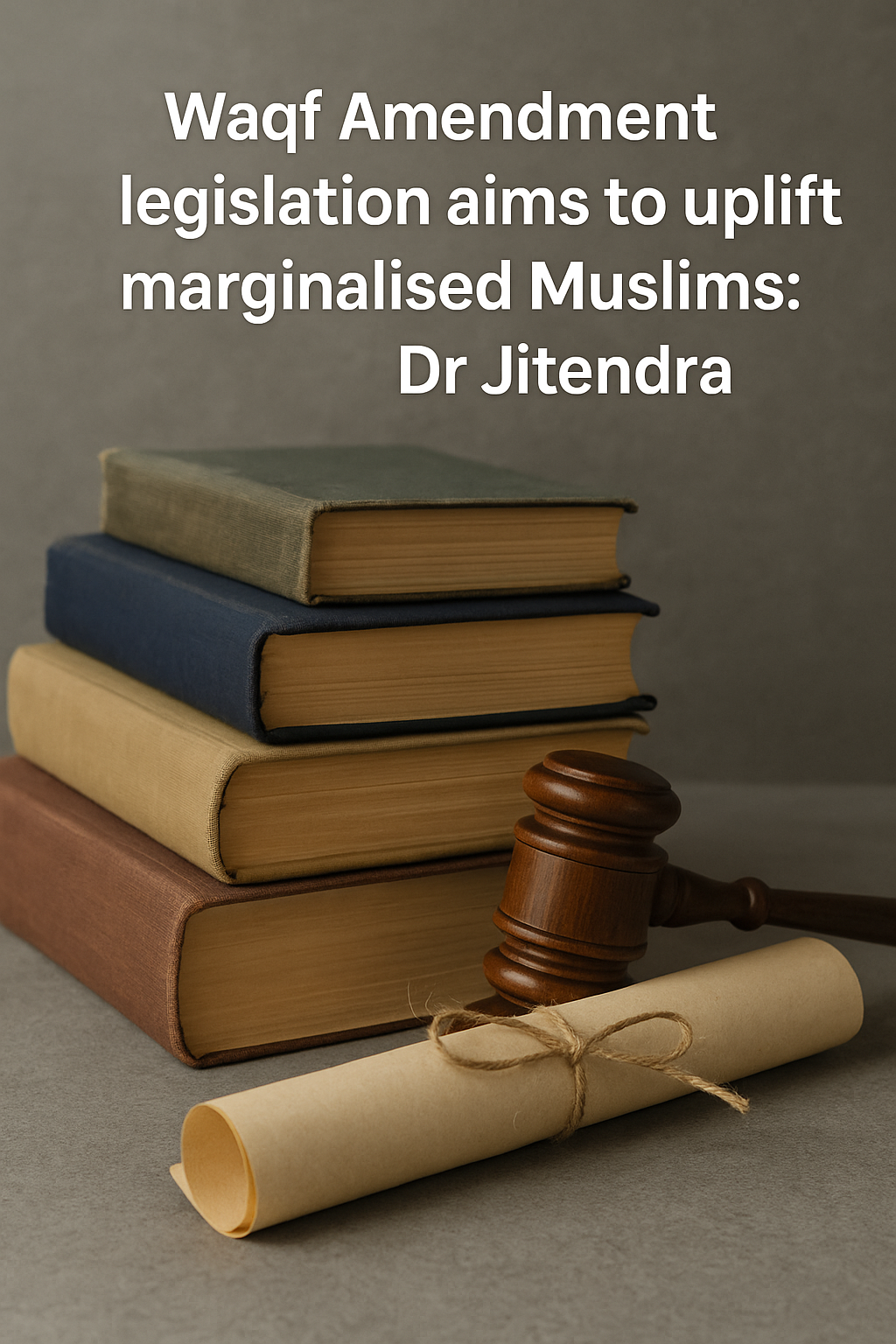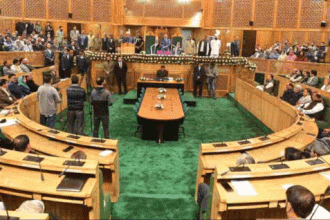Raipur, May 1 – In a heartfelt defense of the newly proposed Waqf Amendment Bill, Union Minister Dr. Jitendra Singh emphasized that the legislation is not just a legal reform, but a sincere step towards empowering the most underserved within the Muslim community.
Speaking at a press conference in Raipur, Dr. Singh addressed growing concerns and misinformation surrounding the bill. “Let’s be clear—this is a pro-Muslim, pro-justice move,” he said, his voice firm but compassionate. “The changes are designed to protect what is rightfully meant for the poor and needy in the Muslim community.”
Waqf properties—land and assets donated for public good and charity—have long been meant to support education, healthcare, and upliftment of the underprivileged. However, Dr. Singh revealed that in many states, these lands have been misused, even diverted to build commercial centers like malls and luxury hotels. “It’s heartbreaking,” he said, “when you see wealth meant for charity being exploited while 31% of Muslims in India still live below the poverty line.”
For Dr. Singh, this bill is deeply personal. “We’re not just changing laws—we’re correcting injustices. We’re making sure that the resources meant for the needy reach them,” he stressed, aligning the reform with Prime Minister Narendra Modi’s larger vision of Sabka Saath, Sabka Vikas—development for all.
Addressing criticism over the role of District Collectors in the bill, Dr. Singh was clear. “It’s not about religion—it’s about integrity. District officials are the best people to confirm the authenticity of land records and stop fraudulent claims. Without proper checks, how can we ensure fairness?”
At its core, he said, the amendment bill is about restoring trust and dignity. “This isn’t just legal jargon—it’s about honouring the true spirit of Islam, which teaches honest charity and care for the less fortunate,” he concluded. “We owe it to every struggling family to ensure that Waqf resources serve their true purpose.”
The government, he reaffirmed, stands committed to Antyodaya—the upliftment of the last person in line.








